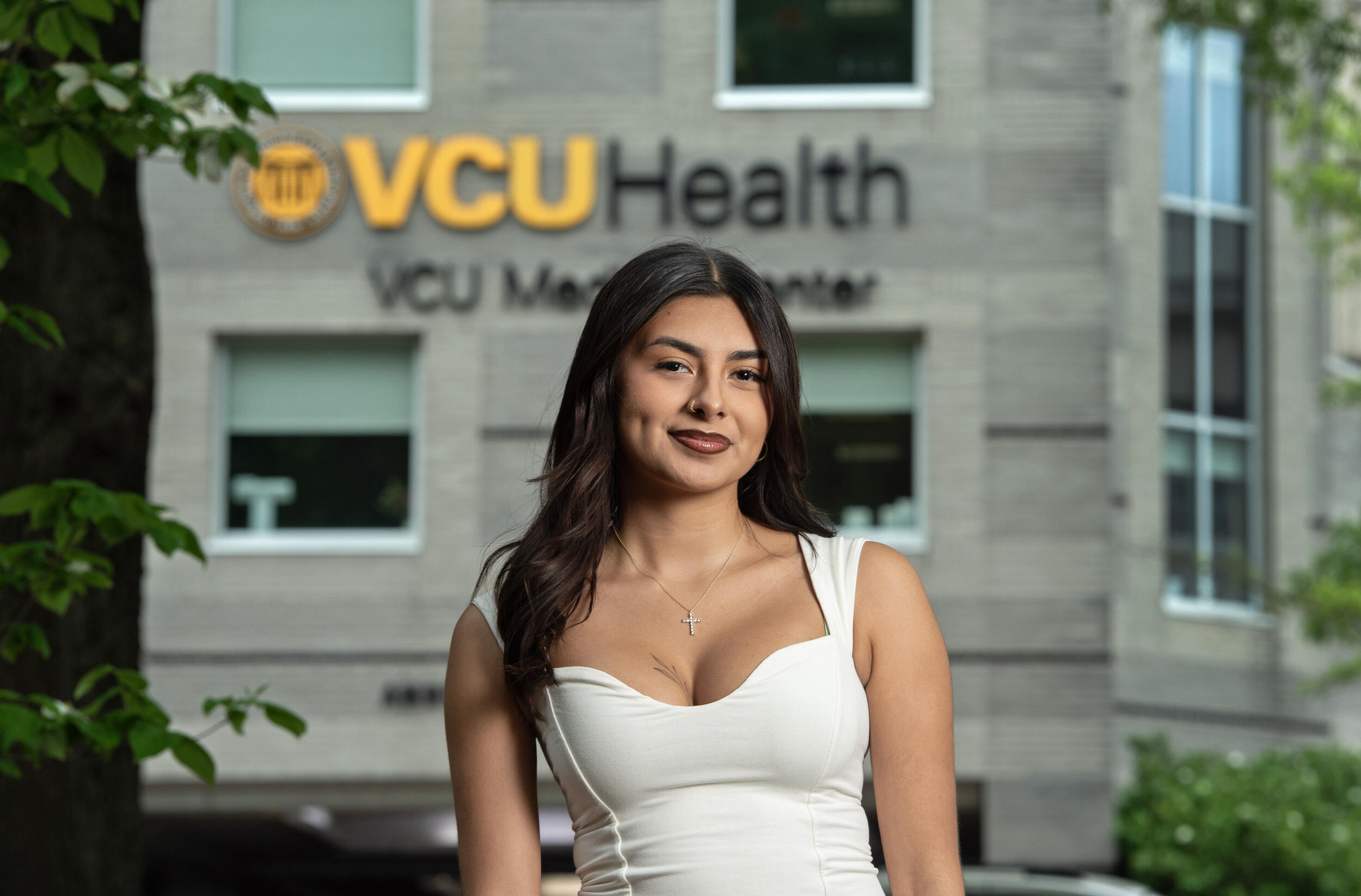
April 30, 2024
Class of 2024: Family and diversity inspire Sheila Hernández-Rubio on her path toward medicine and community
Share this story
Sheila Hernández-Rubio grew up in Stafford County as a first-generation immigrant, and as a child that meant translating for her parents – from filling out legal documents to acting as an interpreter at medical appointments.
“I always knew that I either wanted to become a doctor or a lawyer, just because of how I was raised and the things that I saw growing up,” Hernández-Rubio said. “So from the jump, I was like, I’m gonna do this because I have the privilege of being able to speak English and Spanish and being able to understand my culture while navigating the U.S.”
A high school course that allowed her to shadow emergency medical technicians, as well as research projects she handled, sealed her passion for the medical field and led her to Virginia Commonwealth University.
“I fell in love with medicine, health care and the problem-solving aspect of it,” she said. “Then I shadowed and I did research, and so I feel like all that came together.”
Hernández-Rubio will graduate in May with a bachelor’s degree in sociology from the College of Humanities and Sciences with a minor in chemistry, and is on the pre-medicine track. Before med school, though, she will spend two years conducting research with the National Institutes of Health, looking into health disparities in Black and Hispanic communities.
Hernández-Rubio said she was attracted to VCU’s diverse student and faculty population, as well as the school’s proximity to her family. They supported – and inspired – her academic pursuits.
Diversity in medicine is important to Hernández-Rubio in part because many immigrants, including some members of her family, are reluctant to visit doctors because of language barriers. If they do go, they might rely on digital tablets to translate, which aren’t always accurate. This means doctors miss out on vital information, which impacts the patient’s treatment.
“Let’s say something’s been bothering them for a while, but [patients will] just hold off [seeking care] until it’s too late, or it’s life-threatening,” she said.
To promote diversity, Hernández-Rubio served as president of SACNAS – the Society for the Advancement of Chicanos/Hispanics & Native Americans in Science. She embraced having a community of students who understood her struggles as a person of color pursuing STEM fields, and the group’s programs included insights from professionals and facilitating attendance at conferences.
“You go into a space where it’s filled with successful minorities and they’re all willing to support you – even if they just met you. I love that aspect of it,” she said.
Hernández-Rubio also served as vice president of Culture, a student organization connected to the Office of Multicultural Student Affairs.
While pre-med studies were in her VCU plans all along, it was in a general education class where Hernández-Rubio discovered her interest in sociology.
“We talked about racism in the United States, systematic institutional racism – and it was like an introduction to sociology because I had never heard of sociology or taking sociology in my high school,” she said.
Hernández-Rubio noted that sociology is important to understanding medical practice. For example, doctors may treat patients similar to them more favorably.
Hernández-Rubio wants to work in free clinics because she can relate to underinsured patients. She also has a special interest in cardiology because of family history, including how treatment – including dietary changes – can intersect with cultural traditions.
At VCU, Hernández-Rubio conducted undergraduate research through the Pauley Heart Center and McNair Scholars program. She was looking at the prevalence of left ventricular hypertrophy in different races and ethnicities, and through that work, she found her mentor, Mohammed Makkiya, M.D., a cardiology specialist at VCU Health. In addition, her internship program exposed her to a full range of cardiology-related departments.
“I feel like this made me truly realize, ‘Oh, yeah, this is what I want to do,’” she said.
As she prepares for her NIH research after graduation, Hernández-Rubio believes her passion for health care and sociology will enhance her commitment to evidence-based medicine that can target disparities.
“Is this a socioeconomic issue? Is this a structural systemic issue? Is this genetic? What are we missing here that’s leading to this disparity?” she said of her mindset.
And that curiosity reflects the advice Hernández-Rubio would share with other students: Pursue something you’re passionate about.
“It’s going to be hard. It’s going to be challenging,” she said. “But you got to keep going.”
Subscribe to VCU News
Subscribe to VCU News at newsletter.vcu.edu and receive a selection of stories, videos, photos, news clips and event listings in your inbox.










